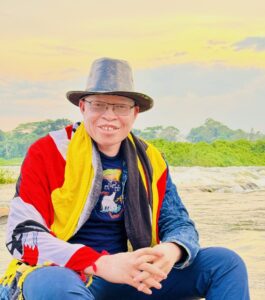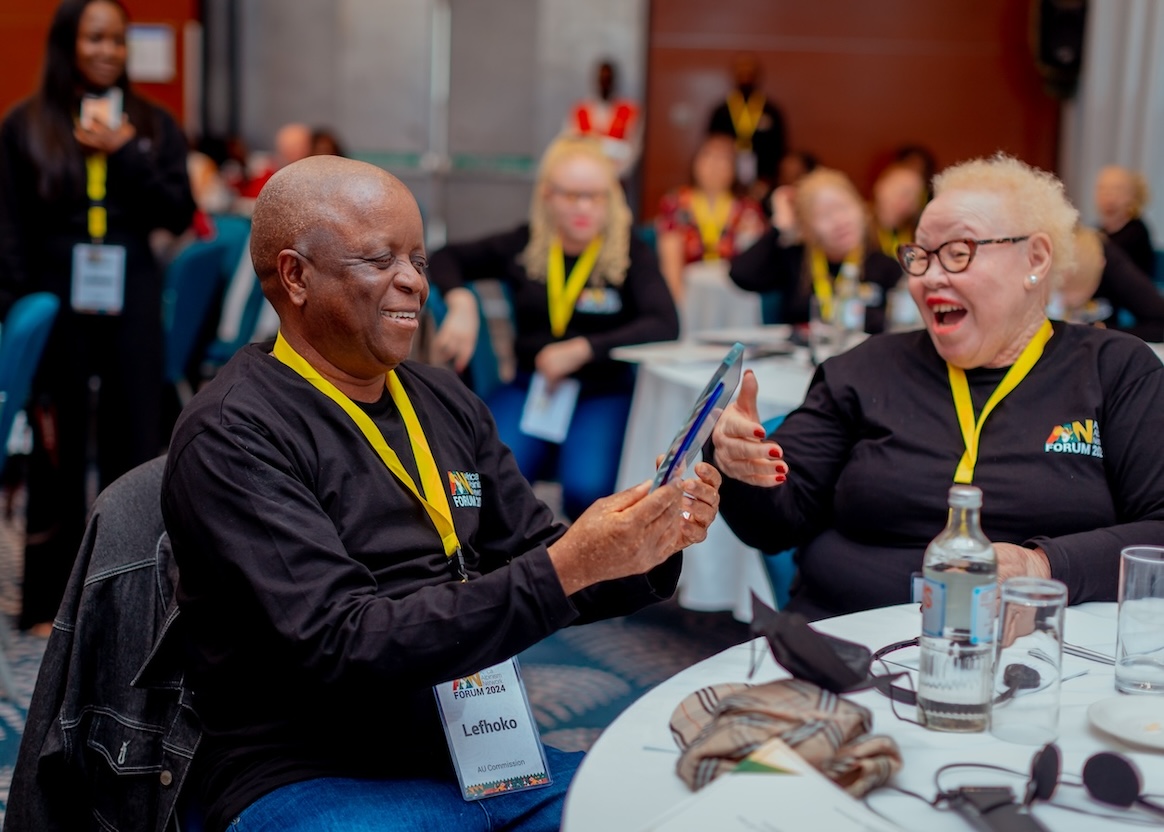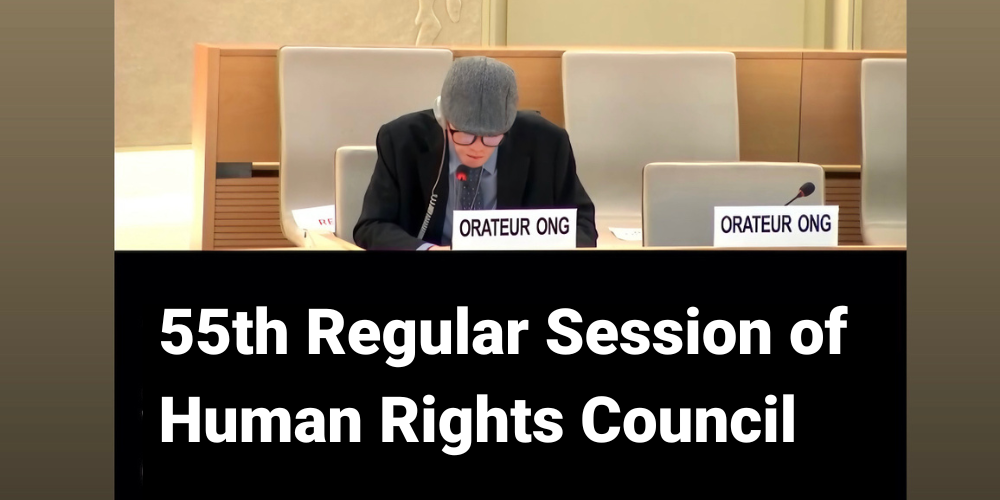Human rights defenders (HRDs) with albinism are unsung heroes in the battle against discrimination. They tirelessly work to raise awareness about albinism and inclusivity. Their advocacy is crucial; it enables them to navigate societal challenges more resiliently. Such is the case of Peter Ogik, the Executive Director of the Source of the Nile Union of Persons with Albinism (SNUPA), with whom we had a recent conversation about his experiences as an HRD working with and for people with albinism.
In his words, “As I look back on the previous year, I appreciate the chances I have had to make a big difference. One notable event that kicked off the year was an invitation to participate in the Africa Albinism Network’s Learning Forum in Tanzania in February 2023. This pivotal event allowed human rights defenders like me to unite and forge partnerships that amplify our collective impact.”

As the year progressed, SNUPA continued its commitment to skin cancer prevention by sustaining its initiative with monthly visits to 4-5 districts across Uganda and conducting pre-cancer screenings. “Additionally, our dedication to inclusive education was demonstrated by distributing 2-in-1 reading and sunglasses for students with albinism,” said Peter.
He understood early on, through his work at SNUPA, that building networks with other organizations in the broader disability movement is critical. By recognizing the value of collaboration, he has worked with mainstream disability organizations to strengthen partnerships and leverage the adopted National Action Plan on Albinism (NAP) to ensure that people with albinism who are in refugee camps benefit from clinic visits, educational support materials, and economic empowerment. However, as he pointed out, implementing the NAP has been daunting, and organizations like SNUPA are still relied upon for active advocacy.
“I received threats to my life as a result of my advocacy efforts.”
Both successes and challenges mirror the impact of his advocacy for Ugandans with albinism. In one experience, Peter recounts, “I received threats to my life as a result of my advocacy efforts.” However, Peter is unfazed by this, pointing out that in the last five years, notable progress has been made in increasing public awareness of albinism in Uganda and sensitizing medical professionals about albinism; they had previously shied away from touching people with albinism. Furthermore, there are now more university graduates with albinism than there used to be, and people with albinism are making significant strides in various professional fields, and the larger disability community is now embracing cooperation in advocacy work.
“Be persistent and bold; use your unique talents to amplify your message and collaborate with like-minded people and organizations.”
As our discussion wound down, Peter reiterated that raising funds, especially for skin cancer treatment, demands an immense effort, and he hopes that soon SNUPA will build its capacity to finance its advocacy work so that its beneficiaries can become independent, and its projects are sustainable. He also pointed out that sunscreens are now free for people with albinism at SNUPA as the government has made sunscreens tax free.
As Peter looks to the future, he tells aspiring advocates passionate about social issues, “Be persistent and bold; use your unique talents to amplify your message and collaborate with like-minded people and organizations.”
For more information about Peter and his work:
Facebook: ogik.Peter
Facebook: snupalbinism (Source of the Nile Union of Persons with Albinism)
Twitter: ogikpeter
Instagram: ogikpeter


